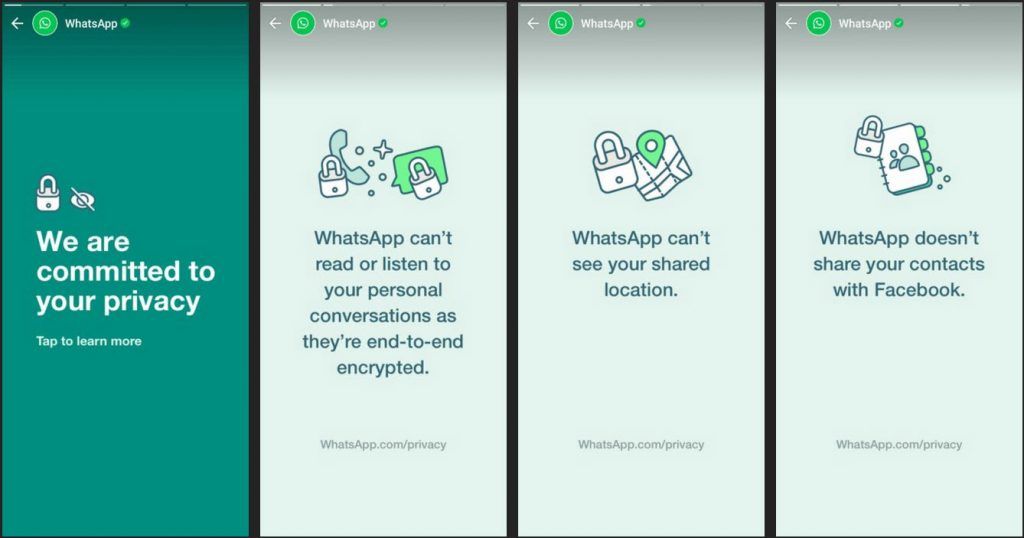Facebook-owned messaging platform WhatsApp is caught in a whirlwind. The company recently rolled out its new terms of service, and it has seen a massive exodus to alternate apps like Signal and WhatsApp. They have now pushed the deadline to accept the new terms and is actively seeking to control the damage that has been caused by them.

According to Android Police, WhatsApp’s latest effort to convince users of its naivety is with Status updates that address some rumors that may be floating around (ironically, probably on WhatsApp itself). The new stories amplify the same message that it has been trying to send in the last few days: that it can’t read chats or listen to calls and that it doesn’t share contacts with Facebook, among other things.
WhatsApp’s largest market is India –in terms of number of users, it even bought front-page ads in leading newspapers that read “WhatsApp respects and protects your privacy” — a buy that likely cost tens of millions of rupees, according to Reuters.
The ad states that the new privacy policy update “does not affect the privacy of your messages with your friends and family in any way” and that it only relates to interactions with businesses. However, similar to its other clarifications, it doesn’t shed any light on the amount of metadata it collects — which is substantial compared to other messaging services.
Following is the list of data that each of the three messaging apps (WhatsApp, Telegram and Signal) collects from their users:
Device ID
User ID
Advertising Data
Purchase History
Coarse Location
Phone Number
Email Address
Contacts
Product Interaction
Crash Data
Performance Data
Other Diagnostic Data
Payment Info
Customer Support
Product Interaction
Other User Content
Telegram
Contact Info
Contacts
User ID
Signal
None. (The only personal data Signal stores is your phone number)
It will be no surprise to see WhatsApp spend more on marketing to pull back users as the traction that Signal and Telegram have gained in the last few days is unmatchable. What would save the company if they become upfront about the data it uses and shares.

